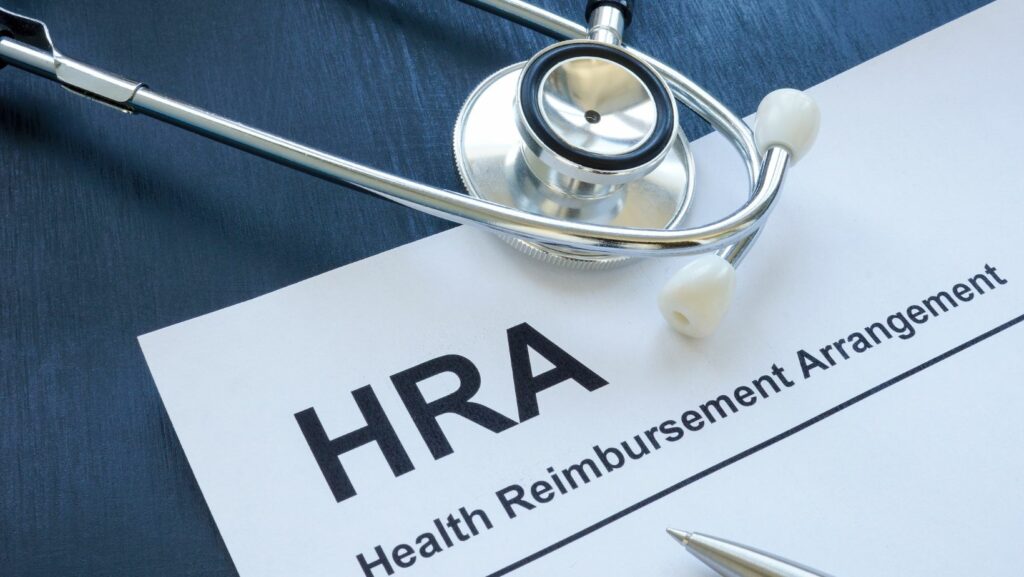Navigating the world of health reimbursement arrangements (HRAs) can be daunting, especially when it comes to understanding which products and services are eligible for coverage. HRAs, a popular type of employer-funded health benefit plan, offer employees a tax-advantaged way to receive reimbursements for qualified medical expenses. This flexibility makes HRAs an attractive option for both employers and employees looking to manage healthcare costs effectively.
HRA Eligible Products
 Products eligible for Health Reimbursement Arrangement (HRA) coverage vary extensively, often dependent on the type of HRA and the specific rules set by the employer. Engaging with HRA-eligible products correctly ensures optimal use of these tax-advantaged benefits.
Products eligible for Health Reimbursement Arrangement (HRA) coverage vary extensively, often dependent on the type of HRA and the specific rules set by the employer. Engaging with HRA-eligible products correctly ensures optimal use of these tax-advantaged benefits.
An HRA, or Health Reimbursement Arrangement, is an employer-funded plan that helps employees pay for qualified medical expenses not covered by their insurance plans. These arrangements are highly beneficial as they are funded solely by the employer, and reimbursements received by employees are generally tax-free. An important point to note is that all HRAs are not identical and their benefits can differ based on the structure set by the employer.
Types of HRAs
 Several types of HRAs exist, each designed to suit different needs and situations. Understanding these types can help employees and employers alike find the most suitable arrangement:
Several types of HRAs exist, each designed to suit different needs and situations. Understanding these types can help employees and employers alike find the most suitable arrangement:
- Individual Coverage HRA (ICHRA): Ideal for employers of any size looking to reimburse individual health insurance premiums and other medical expenses.
- Qualified Small Employer HRA (QSEHRA): Designed for small employers with fewer than 50 full-time employees, this HRA can cover eligible medical expenses and insurance premiums.
- Excepted Benefit HRA (EBHRA): Allows an annual reimbursement for specific benefits not covered under a primary health plan.
- Group Coverage HRA (GCHRA): Often integrated with an employer’s group health plan, it provides additional benefits for out-of-pocket expenses not covered by the primary insurance.
Each type represents distinct eligibility criteria and funding caps, emphasizing the adaptability and scalability of HRAs to meet diverse employee needs.
Exploring HRA Eligible Products
With a variety of HRAs available, identifying products eligible for reimbursement is crucial. This section delves into specific categories of HRA-eligible products that span medical equipment and devices, medications, and preventive services.
Medical Equipment and Devices
Medical equipment and devices that qualify under an HRA must generally be intended for medical use. This includes, but is not limited to, blood pressure monitors, glucose meters, and orthopedic braces. These items must be primarily used to alleviate or prevent a physical or mental defect or illness. For instance, items like heating pads, air purifiers prescribed for allergies, or wheelchairs fall under this category because they are intended for medical use rather than convenience or general health maintenance.
Prescription Medications and Over-the-Counter Drugs
 Prescription medications are widely recognized as HRA-eligible if they are prescribed by a licensed healthcare provider. This encompasses treatments spanning from antibiotics to chronic condition management drugs. Similarly, over-the-counter drugs also qualify, provided they are accompanied by a doctor’s prescription. Notably, medications like pain relievers, antihistamines, or antacids, when prescribed, can be reimbursed through HRAs, in contrast to dietary supplements such as vitamins, which often require further justification to be considered eligible.
Prescription medications are widely recognized as HRA-eligible if they are prescribed by a licensed healthcare provider. This encompasses treatments spanning from antibiotics to chronic condition management drugs. Similarly, over-the-counter drugs also qualify, provided they are accompanied by a doctor’s prescription. Notably, medications like pain relievers, antihistamines, or antacids, when prescribed, can be reimbursed through HRAs, in contrast to dietary supplements such as vitamins, which often require further justification to be considered eligible.
Preventive care services covered by HRAs include a range of tests and screenings recommended by healthcare professionals to prevent illness or detect health issues early. These services often include vaccinations, annual physical exams, mammograms, and colonoscopies, which are essential for maintaining health and early disease detection. Importantly, the inclusion of preventive care services under HRA-eligible expenses highlights the commitment to proactive healthcare management, ensuring that minor concerns are addressed before developing into more severe health issues.
Benefits of Using HRAs for Health Expenses
Navigating the HRA landscape effectively empowers individuals and employers to manage healthcare costs while ensuring access to necessary medical services and products. By leveraging the flexibility of HRAs to cover a broad range of health-related expenses, from high-tech medical equipment to essential preventive care, users can maximize their healthcare investments. Understanding which products and services are eligible under different HRA plans not only optimizes the benefits but also enhances overall health outcomes. Therefore, staying informed and proactive in healthcare management is crucial for making the most of HRAs.

